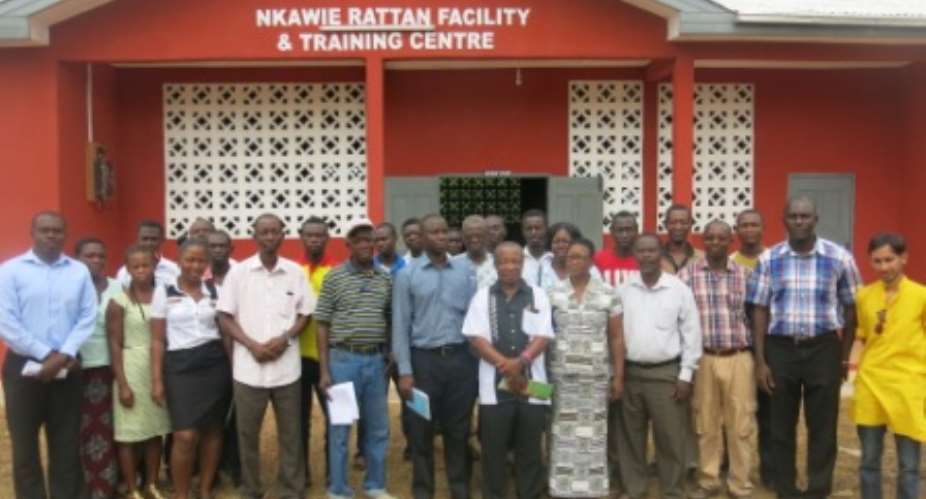Rattan has been identified as an important non–timber forest product with the potential to contribute significantly to Ghana's poverty alleviation and socio-economic development.
A study by the International Network for Bamboo and Rattan (INBAR) estimates that 98 percent of rattan raw material is distributed mainly to artisans for the manufacture of a variety of products in the major cities of the country.
Basket and furniture constitute about 75 percent of rattan products mainly consumed by prospective domestic customers in homes, offices and hotels.
However, the chain of raw material supply, processing of products and marketing is hampered by a number of bottlenecks, including a dwindling resource base and uncoordinated raw material extraction and distribution.
“Rattan takes about ten years before maturing when planted so we are working with the Forestry Commission to ensure that at least within the forest reserve, it can be sustained or protected to ensure that permits to people that collect or harvest them are done on sustainable basis,” stated Michael Kwaku, Country Director of INBAR, Ghana.
He added that the INBAR is looking at supporting local communities with degraded lands to go into rattan plantation to support the supply-base of the industry.
The current artisan technology identified entails the use of simple manual tools in peeling, drying, splitting, framing and weaving with little or no preservation to enhance durability. Production is also under tree canopy workshops along major streets where products are displayed on the ground for sale.
INBAR is working with the Centre for National Culture and the Atwima Nwabiagya District Assembly to train artisans in the rattan processing to improve production efficiency and quality of products through technological improvements. The training is funded by the Council for Technical and Vocational Education and Training (COTVET) under the Skills Development Fund.
District Culture Officer, Doreen Aba Mensah, is enthused at the opportunity for women and young people to venture production of products made from bamboo and rattan.
The Nkawie Rattan Facility and Training Centre is being established to serve as an enclave for artisans in bamboo and rattan production in the Ashanti region to process and market their produce.
The International Network for Bamboo and Rattan (INBAR) is investing in technology transfer for the artisans to improve on their products, especially product finishing.
Mrs. Aba Mensah expects the Centre to help open up the tourism potentials of the district.
Story by Kofi Adu Domfeh





 2024 election will be decided on the grounds of the economy; choice of running m...
2024 election will be decided on the grounds of the economy; choice of running m...
 Dumsor: We're demanding less; just give us a timetable — Kwesi Pratt to ECG
Dumsor: We're demanding less; just give us a timetable — Kwesi Pratt to ECG
 Do I have to apologise for doing my security work, I won’t – Simon Osei-Mensah r...
Do I have to apologise for doing my security work, I won’t – Simon Osei-Mensah r...
 Prestea and Bogoso mines: Complete payment of outstanding salaries not later tha...
Prestea and Bogoso mines: Complete payment of outstanding salaries not later tha...
 NDC postpones Prof. Opoku-Agyemang entry tour to May
NDC postpones Prof. Opoku-Agyemang entry tour to May
 All my businesses have collapsed under Akufo-Addo — NDC Central regional chair
All my businesses have collapsed under Akufo-Addo — NDC Central regional chair
 Military, Prison Officers clash in Bawku, three injured
Military, Prison Officers clash in Bawku, three injured
 GRA-SML contract: MFWA files RTI request demanding KPMG report
GRA-SML contract: MFWA files RTI request demanding KPMG report
 Court threatens to call second accused to testify if NDC's Ofosu Ampofo fails to...
Court threatens to call second accused to testify if NDC's Ofosu Ampofo fails to...
 Family accuses hospital of medical negligence, extortion in death of 17-year-old...
Family accuses hospital of medical negligence, extortion in death of 17-year-old...
